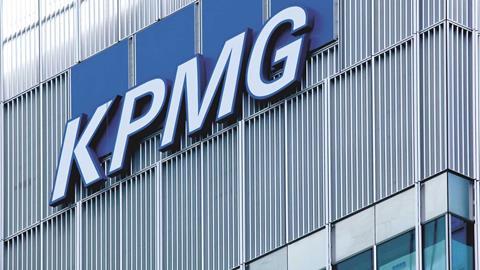KPMG is being sued for £1.3bn for allegedly failing to notice several ‘red flags’ when auditing collapsed construction giant Carillion in one of the biggest High Court claims ever brought against one of the Big Four accountancy firms.
Carillion imploded in 2018 following the discovery of ‘serious accounting irregularities’ the previous year, having been audited by KPMG since 1999.
The official receiver, which is liquidating Carillion plc and Carillion Construction Limited, is now bringing a claim against KPMG over its audits between 2014 and 2016, alleging the firm failed to detect misstatements ‘because they were in wholesale breach of their obligation as auditor’.
KPMG ‘failed to maintain a fully independent state of mind and relationship with management when conducting the audits’, according to particulars of claim filed at the High Court.
Audit management partner Peter Meehan is said to have ‘repeatedly accepted hospitality from and offered hospitality to Carillion and its senior management’ and ‘failed to respect the proper boundaries of the auditor/client relationship’.
Meehan allegedly told Carillion’s chief executive Richard Howson that he ‘could use KPMG’s hospitality suite in Mayfair’, as long as he said it was in his capacity as a non-executive director of engineering firm Wood Group, an offer which was declined.
The claim alleges that Carillion’s financial statements were not prepared ‘in accordance with the applicable accounting standards and policies, did not give the disclosure required by accounting standards and did not comply with the Companies Act 2006’.
‘They failed to account for revenue and costs under long-term construction contracts, and for goodwill, in accordance with the applicable accounting standards and the claimants’ and the group’s accounting policies. They failed to disclose that there was material uncertainty in relation to the claimants’ and the group’s ability to continue as going concerns.’
‘Any reasonably competent auditor would have detected and reported these misstatements and the related disclosure deficiencies,’ it adds.
KPMG suggested in pre-action correspondence that ‘the misstatements were deliberately concealed from KPMG and that this provides a defence for them’, the official receiver said. ‘The very reverse is true. The deliberate manipulation of the claimants’ financial reporting which occurred is a type of conduct which audits ought to detect and report.’
A spokesperson for the official receiver said: ‘The official receiver has taken this action in the interests of creditors who lost substantially in the liquidation. The decision is based on legal advice, which is that KPMG is answerable to Carillion’s creditors for losses that have been caused.’
A spokesperson for KPMG said: ‘We believe this claim is without merit and we will robustly defend the case. Responsibility for the failure of Carillion lies solely with the company’s board and management, who set the strategy and ran the business.’
The accountancy firm has been given until 31 March to file its defence.




























3 Readers' comments